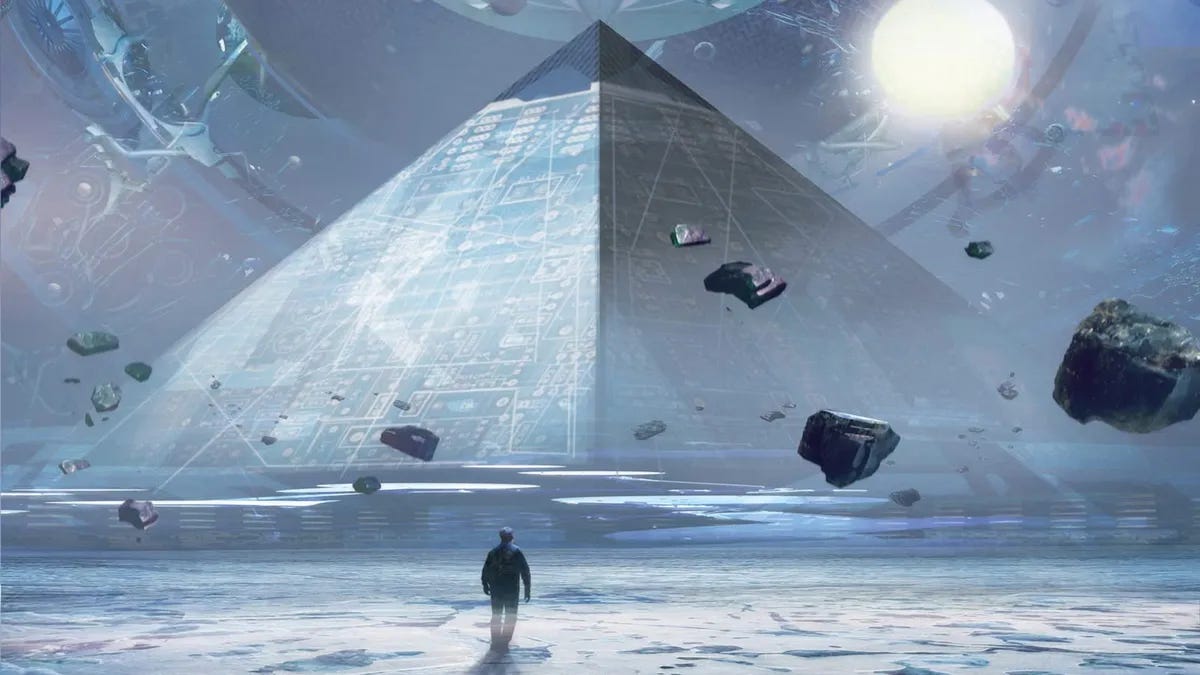Reading the Three-Body Problem through climate-tinted glasses
The Chinese sci-fi masterpiece asks vexing questions about humanity's future

(Contains spoilers for Remembrance of Earth’s Past by Liu Cixin)
When Netflix announced that it was going to release an adaptation of the Three-Body Problem, I was incredibly skeptical. The story is based on a three-book series, Remembrance of Earth’s Past, by Chinese author Liu Cixin (刘慈欣). It really has only about 15% Hollywood-ready content. The rest is ultra-dense sci-fi jargon, physics mumbo-jumbo, technobabble, and long, oblique descriptions of outer-space vistas and alien landscapes as viewed through virtual reality goggles and, later, the naked eye.
This, at least, is my impression after recently finishing the full series. Having started the first book years ago while living in Hong Kong, I slowly made my way through the tomes in the original Chinese, trying my best to grasp the nuance and complexity of this incredibly expansive narrative. In short, the series focuses on a tragic encounter between humans and an alien race, and all the complications and drama that this sparks for the entire human race.
And boy, are we talking about a lot of drama. While stalwarts of mainstream Western science-fiction like Star Trek peer hundreds of years into the future to imagine our descendants traversing distant parts of the galaxy, Remembrance of Earth’s Past takes its story literally to the end of the lifespan of the known universe. Liu lays out a meticulous vision for how humans will reach this state, and what life will be like long after our comparatively puny solar system has been reduced to dust. It’s ambitious, to say the least.
Soon after finishing the last book, I stumbled upon an unrelated essay which cites a speech by the author Toni Morrison, in which she challenges humanists to project themselves into the deep future—not just decades or centuries, but millennia and beyond. “The relationship between human possibility and human limits was, for [Morrison], the crux of literature,” the essay author contends.
To me, Remembrance of Earth’s Past completely embodies this notion. As a response to Morrison’s challenge, it gives me an eerie sense that climate change is stymying our best fabulists’ ability to project beyond a few decades. The urgency of the situation depends on our actions within such a short timeframe. Putting aside Elon Musk’s boldest predictions, the pace of unmitigated climate change will vastly eclipse technological progress in space travel, meaning that humans’ ability to colonize other planets will inevitably fall victim to meteorological and ecological chaos on our own.
This is a problem for science fiction. What’s the point of imagining an exotic future for our planet when all the most likely real-world scenarios converge on a Waterworld-esque landscape of submerged cities and searing heat? Will we really be able to terraform Mars when we can’t even maintain a once-perfectly habitable biome here on Earth?
It’s no surprise to me // I am my own worst enemy
Liu seems to believe we can; climate change plays virtually no role in his story, even as the alien civilization at the core of the conflict covets our relatively livable rock as their own falls victim to cosmological forces far more threatening than greenhouse gas-induced warming. Facing this threat, human civilization puts aside its differences and embarks on a spectacular program of space exploration, constructing massive floating cities in the orbit of other planets like Jupiter and Saturn. We also break through a biological bottleneck, inventing a method of cryogenic hibernation that extends lifespans by hundreds of years.
This oversight raises huge questions. Does humanity simply manage to solve climate change in the background of all these other breakthroughs? Perhaps because the solution to climate change is so blindingly obvious—trading fossil fuels for renewables—the subject may feel like small beer to someone with an imagination as far-reaching as Liu’s. It is, after all, far more intellectually stimulating to think about solutions to an invasion of an alien species that can travel as fast as the speed of light, or transform three-dimensional space into two-dimensional space (yes, this actually happens in the third book). What’s a little CO2 next to a villain that can literally manipulate the very fabric of spacetime?
A big difference, of course, is that humans didn’t create the dimension-warping enemy of Liu’s story. We did, however, create climate change. This, more than anything else, is the most thorny problem facing modern science fiction. How do we reconcile with the adversary we see when we look in the mirror? Mainstream sci-fi has serious trouble with this kind of pathology.




